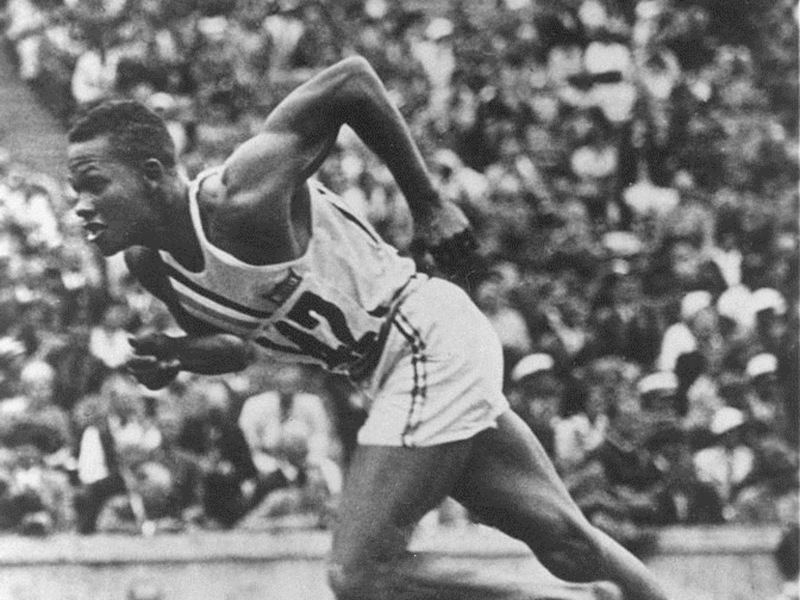It's February and that means it's Black History Month! This event, celebrated annually in the U.S. and the U.K., was founded in 1926 by an African-American historian Carter G. Woodson.
It was originally Negro History Week and intended to honor Frederick Douglas, Abraham Lincoln and several historical February events that impacted the lives of African-Americans; most notably, the addition of the Fifteenth Amendment to the US Constitution, which gave blacks the right to vote.
Confession No. 1: The only reason I know all that is because of the magic of Google!
Confession No. 2: I haven't celebrated Black History Month (BHM) in over 10 years and I actually don't plan on doing so this year.
According to a February 2007 survey conducted by Zogby International, a major polling firm, there's no real consensus on the topic among Americans. Ten thousand people were polled and produced the following results:
- 43 percent said that that setting aside one month of the year to focus on a racially-defined observance was a token gesture.
- 39 percent said they viewed it as a good opportunity to raise awareness.
- 18 percent were not sure.
I'm in that middle percentile. Even though I don't observe BHM, I definitely feel that it's a good opportunity to raise awareness of the contributions that countless African-Americans have made to our country. I have studied black American history and read many of the great black American writers and poets. Growing up, my parents were always talking about the "great things black folks did" and anytime I ate a peanut butter and jelly sandwich, my dad would say, "You do know that George Washington Carver discovered over 300 uses for peanuts?" It seemed like every day was BHM at my house!
Now there are those who think BHM is about expecting white people to apologize for slavery. Some even question the relevance of a month-long celebration, stating that "black people simply need to get over (slavery) and move on with there lives."
News flash: Most black people have gotten over slavery. Over it, but we should never let that period in our history be reduced to a footnote. I don't know if you've looked at a current American high school history book, but I have. The number of pages spent on the subject of slavery and the Civil War has (surprisingly) decreased dramatically since I was in school just 20 years ago. Perhaps the topic is too "turbulent" for our schools.
Even if you choose not to "officially" celebrate, I think there are still several important lessons we can learn. By reading about the tragedies and triumphs of those who went before us, we gain empathy, self determination. We also see the power of hope, patience, forgiveness and resilience. And most importantly, we (hopefully) see the value of practicing those traits in our lives, all year long! After all...
BHM is about remembering, reuniting and rededicating ourselves to our history, our American history. Let's remember the struggles of the Americans that helped build our country. Let's recall how, working together in the '50s and '60s, we were able to push closer to the dream of racial equality for all. There is still much work to do, but focusing on our past successes gives us fuel to keep going. Let's stay focused, ALL YEAR LONG.
BHM helps us recall the dangers of creating racial and socio-economic barriers, which affect more than black Americans. We should use every day to remember where we were just 50 years ago and tear down the divisions that cause unnecessary problems and tension in our community. Let's make "diversity" more than a buzzword.
The most important lesson to learn from this month-long celebration is simple: We're all in this together. We need to realize that first and foremost, we're all human beings. Look past political affiliations, race and sex and realize that we all have something to contribute to the world and our similarities outweigh the differences. If everyone would remember that ALL YEAR LONG, it would be a safer, saner, more peaceful world.
But that world is still in the future. And because of that, Black History Month shouldn't go away just yet. As evidenced by some of the poor role models and the amount of racism that still exists and crosses all color lines, there are still many that could benefit from the multi-faceted message of BHM. Peace.
Black History trivia:
- The United Kingdom celebrates Black History Month in October.
- The National Association for the Advancement of Colored People (NAACP) was founded Feb. 23, 1868 by W.E. Dubois.
- Hiram Rhodes Revels was the first black U.S. Senator. He took the oath of office Feb. 3, 1870.
- On Feb. 3, 1870, black Americans were given the right to vote via the 15th Amendment to the U.S. Constitution.
- On Feb. 1, 1960 in Greensboro, N.C., college students had a sit-in at a Woolworth lunch counter that would turn into a civil rights milestone.
Gary is a life-long resident of Milwaukee. He attended Rufus King High School in the '80s, and unlike many of his peers, he loved high school. He's worked a variety of jobs, from fast food manager to elementary school aide to bookseller at Barnes & Noble to Easy Method driving instructor and his current position, supervising tech support geeks.
In his free time, Gary enjoys writing, walking by the lake, spending time with his partner Jim, and watching his two favorite TV shows, "Lost" and "Battlestar Galactica." He is also working on a non-fiction book that he promises "will be a unique assessment of modern America's problems and their solutions."
Some label him a naive idealist; others call him a practical realist but Gary says that he's simply an old school guy living in a new school world, trying to bring back some old-school common sense. His greatest heroes: mom and dad.







